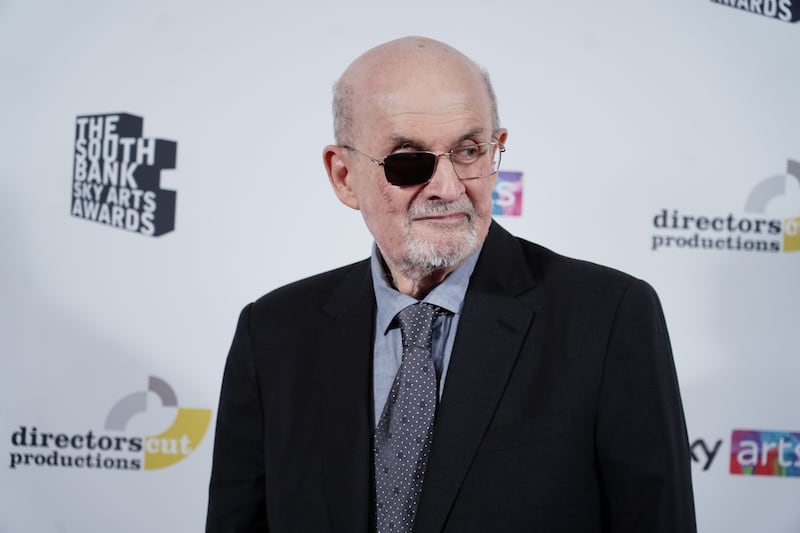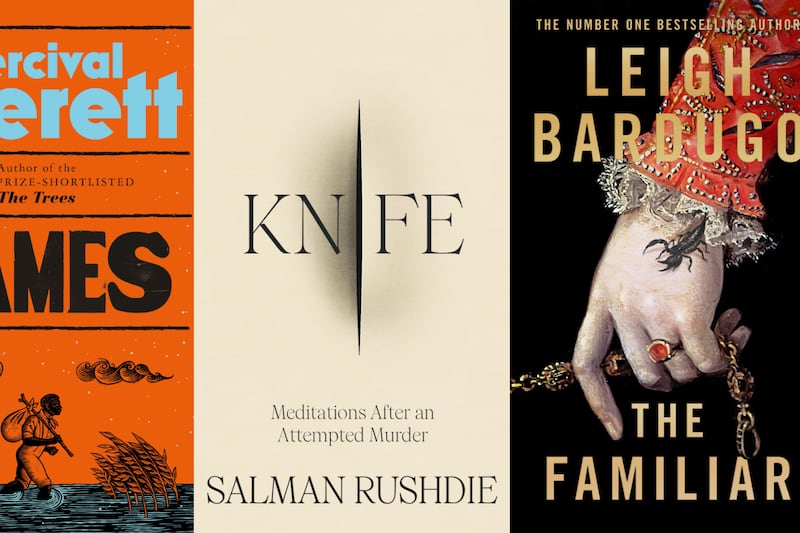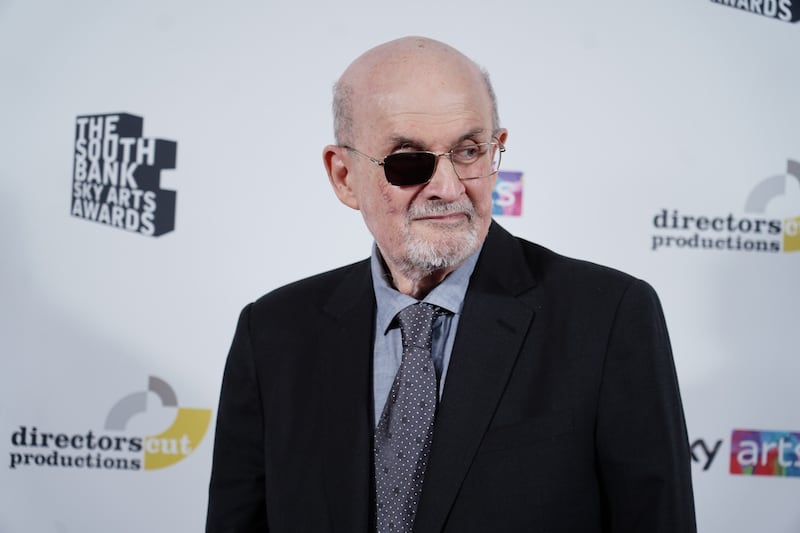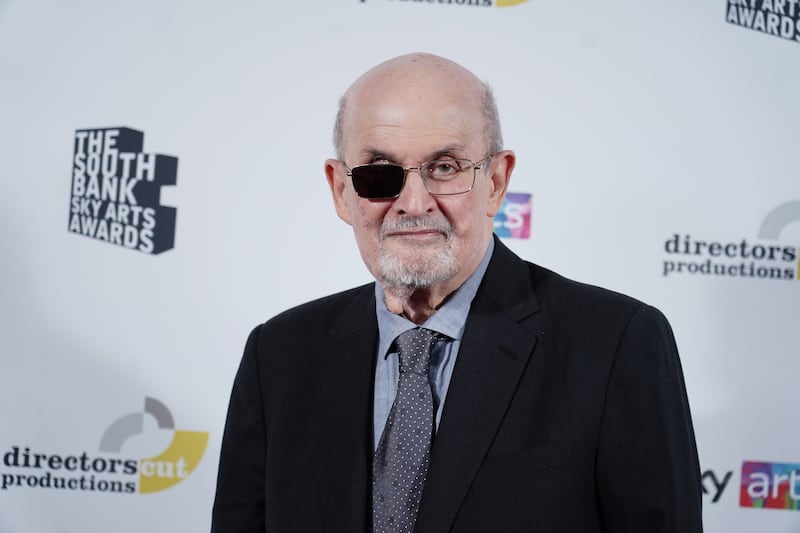Sir Salman Rushdie has said he did not want to attend the talk where he was attacked in 2022 after having a premonition of the incident.
The author suffered life-changing injuries in the knife attack, including the loss of his right eye, while preparing to deliver a speech on free speech in upstate New York.
In his first major television interview since the attack, Mr Rushdie, 76, told Anderson Cooper on CBS programme 60 minutes he had dreamed of a man bearing down on him with a spear in an “amphitheatre” in the days before the event.
“I woke up and I was quite shaken,” he said. “I said to my wife, Eliza, ‘You know I don’t want to go’. Because of the dream. And then I thought, ‘Don’t be silly. It’s a dream’.”
His 1988 book The Satanic Verses has been banned in Iran since it was published as many Muslims view it as blasphemous and its publication prompted Iran’s then-leader Ayatollah Khomeini to issue a fatwa calling for his death. The Iranian government withdrew support for the death sentence in 1998.
The Indian-born author, who said he had about “half a dozen serious assassination attempts” on his life, was due to speak about safe places for writers at the event in the small town of Chautauqua.
“It felt like something coming out of the distant past and trying to drag me back in time, if you like, back into that distant past, in order to kill me,” he said.
“I think he was just slashing. It was the half minute of intimacy between life and death. I was watching it (blood) spread and then thinking I was probably dying. It was quite matter of fact.
“I’ve not had a revelation except there is no revelation to be had.”
He continued: “One of the surgeons who had saved my life said to me: ‘First you were really unlucky and then you were really lucky’.
“I said, ‘what’s the lucky part?’ and he said ‘well, the lucky part is that the man who attacked you had no idea how to kill a man with a knife’.”
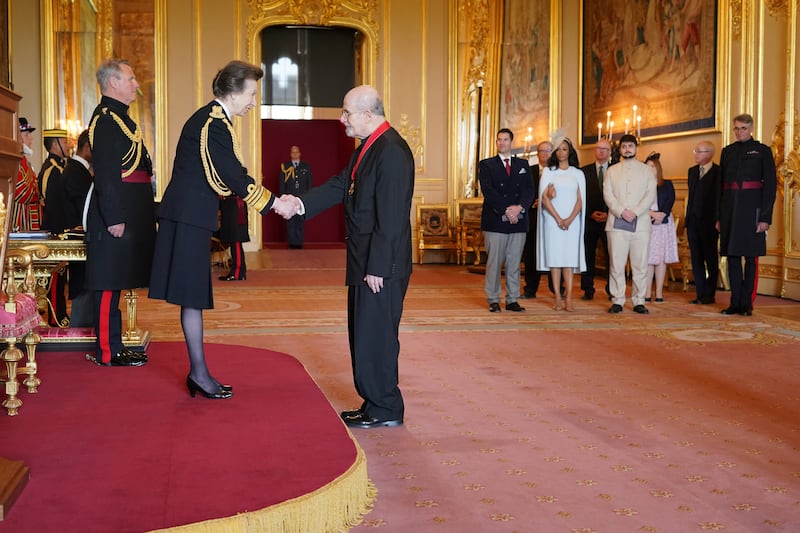
Mr Rushdie was speaking ahead of the publication of his book, Knife: Meditations After An Attempted Murder, which he admitted he was initially reluctant to write.
“It was the last thing I wanted to do,” he said. “The only thing anyone knew about me was this death threat, but I had to write this, to focus on the elephant in the room.
“It then became a book I really wanted to write.
“Language is a way of breaking open the world. I don’t have any other weapons.”
He does not name his attacker – a 24-year-old man from New Jersey named Hadi Matar, who has pleaded not guilty and is awaiting trial – in the book.
“I don’t want his name in my book and I don’t want him in my life,” he said. “We had 27 seconds together (the length of the attack), I don’t want to give him any more of my time.”
Reading from the book, he described his assailant as “coming in hard and low. A squat missile”.
Sir Salman said: “In the corner of my right eye, the last thing my right eye would ever see, I saw the man in black running towards me, down the right hand side of the seating area. Black clothes, black face mask.”
On April 21, he will discuss his book and the attack that left him blind in one eye and with a damaged hand as part of a series of events for the Southbank Centre’s Spring Literature and Spoken Word Season.
The author has said he will consider leaving the US and moving back to Britain if Donald Trump wins the presidential election in November.
Sir Salman has lived in New York for more than 20 years but said America will be “unlivable” if Mr Trump returns to the White House.
He told the Daily Telegraph he is ready to return to London if there is a second Trump presidency and while the choice of America under Trump or post-Brexit Britain would be like choosing the lesser of two evils, “one evil has my family in it”.
He said a Trump victory would be “unbearable, unthinkable, because he’ll be much worse this time. He’ll be unleashed. He’s a liar and a bully, and cares about nothing except himself”.
Asked if he would consider leaving, he said: “[My children] want me to come back to London. I’ve always been torn by having almost all my close family live in London, and to be living here.”
Asked if he would return, he said: “I might do. I’m not going to say more than that.”






